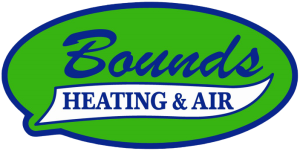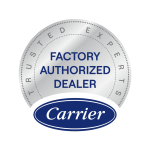Things to Consider When Purchasing an Air Conditioner

You don’t need to understand a lot about technical things to know you need an air conditioner to get you through the hottest days of the summer season. Not only is having an air conditioning unit essential for your comfort, but it also helps your body stay within a set temperature range.
However, it couldn’t hurt to brush up on your technical knowledge to help ensure you choose the right HVAC equipment. HVAC repair experts at Bounds Heating & Air share these tips to make air conditioner shopping easier for you.
First, you need to become familiar with the different types of air conditioning units:
Window-Mounted
Window-mounted units are the most common type of air conditioner. They’re typically not permanently installed, but rather are placed in a window opening when needed (in some regions, you may have to remove them over the winter). Double-hung windows are the most preferred type of window for fitting a window-mounted AC. The good thing is that these units don’t require a lot of work to install, so you should be able to use them with minimal help from an experienced technician.
Wall-Mounted
A wall-mounted air conditioner is permanently installed in a wall opening. This type generally comes in two varieties: cooling and heating, and cooling-only. You’ll probably need a professional air conditioner repair and installation technician to install it but on the plus side. it’s usually prettier to look at and more secure than a window-mounted unit.
Window/Wall-Mounted
This type of unit offers the best of both worlds, as you can use it temporarily in a window or install it permanently in a wall. You may want to buy this type if you expect to move and don’t want to leave the unit behind.
Portable
A portable air conditioning unit comes with wheels so you can move it with ease wherever you need it indoors. It comes with a tube that lets hot air out of a window or other opening, and no work is required to get this unit up and running save for the installation of the exhaust tube.
Modern Features
It also helps to understand the features available on the latest air conditioners. Your modern unit should come with at least some of the following:
-
Manufacturer’s Warranty – For your protection; common warranties typically cover parts and labor for one to two years.
-
Energy-Saver Switch – So the fan doesn’t run continuously when the thermostat cuts power to the compressor.
-
“Check Filter” Light – To remind you of when your filter is due for cleaning or replacement.
-
Remote Control – For convenience and safety, especially when your body temperature drops in the middle of the night.
-
Sleep Mode – To help you avoid getting the chills late at night.
-
Ventilation/Exhaust – To allow the unit to circulate fresh air into the room.
-
Timer – To save on energy, your unit will turn off at a time you specify–say, when you leave for work–then turn on again before you arrive back home.
It’s a bit more complicated to determine the correct size of the air conditioner that’s needed for your room. For that, simply talk to the technicians here at Bounds Heating & Air. We’re HVAC maintenance and installation specialists. Call us today at (352) 472-2761. We’re ready to help you choose a new AC in Gainesville or any other part of Florida.






